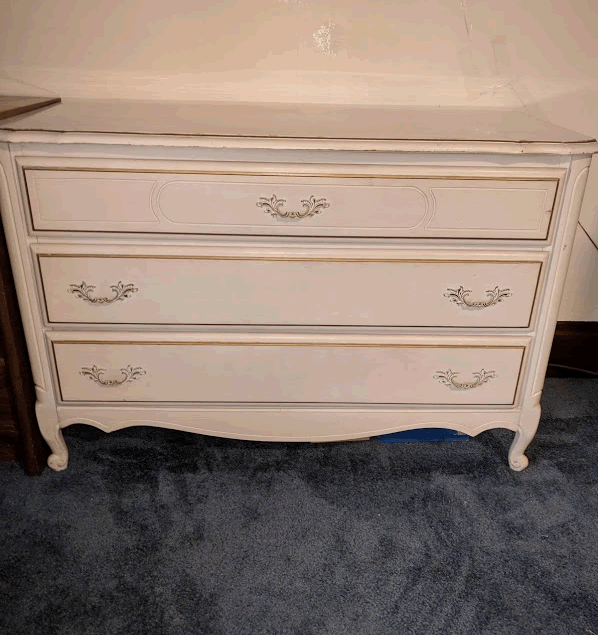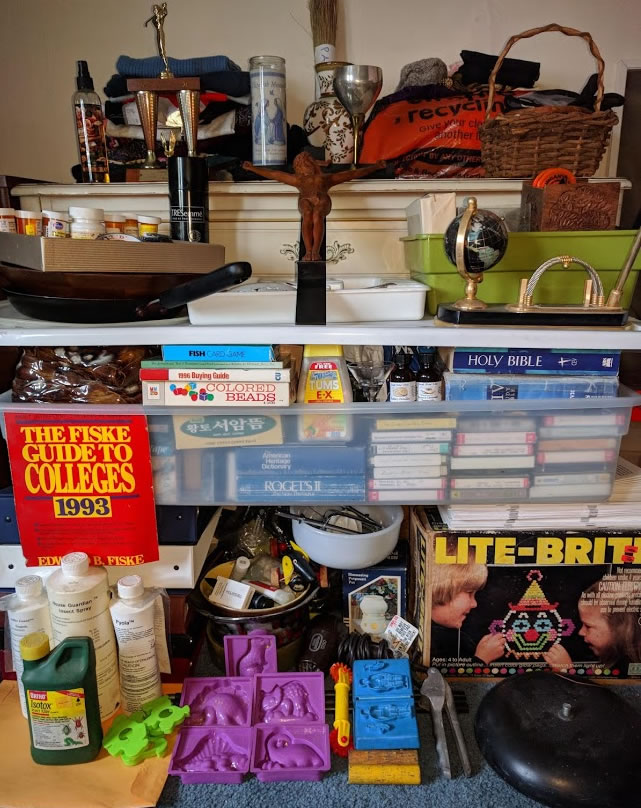I spent the past 10 weeks going Room by Room to discern additional household items to give away. I then spent 2 more weeks researching where to take all this stuff. Some were easy but some took a lot of searching and time. Here is an outline of my methodology and resources so you don’t have to start from scratch.
Step 1: Gather all items in one place.
Step 2. Separate into categories like: clothes, household, books, toys, health, entertainment.
Step 3: Decide how much time and effort you are willing to spend finding homes for your donations. Here are the options I considered from easiest to hardest.
1. HOME-FREE – As my collection of stuff grew I started inviting visitors to peruse my piles and take whatever they wanted. We have a lot of meetings at our home so lots of people come through. We also had some folks do cleaning and yard work so they got to pick too.
• A variation on this is the national Next Door program in which you advertise items for neighbors who come by and pick it up. Freecycle is similar but I had less luck with that.
2. EASY/PEASY– Several charitable organizations have trucks which you can schedule to pick up your items. Although they will often take small loads, I think it is a better use of their time when you have furniture or many items. Examples are: AmVets, Lupus, St. Vincent de Paul Society, Salvation Army. and VietVets. Most groups ask you to put in your location and connect you with their local organization.
3. ONE STOP – Although it’s nice to have a truck stop at your home, I felt a more direct and trusted connection when I could take my donations directly to the charity’s store. The two biggest ones are:
• St. Vincent de Paul Thrift Stores. I took the bulk of my stuff here because I had some local contacts and they confirmed that they take almost everything and nothing goes to a landfill. Click here for the national SVDP website.
• Goodwill Thrift Stores. To also learn about Goodwill’s employment training programs for those will special needs Click here.
4. A GOOD FIT – It’s especially satisfying when you can give a donation to an individual or organization that you have a personal connection with. Donating through your house of worship, a charity you volunteer with, a local school, a municipal entity (like the library) etc. is ideal, but this takes more effort to find the right fit. I took toiletries, socks, etc. to a local homeless shelter and Respite Center I was involved with. A Cincinnati example of a creative local arts outlet is Scrap It Up Creative ReUse Center,
 5. HARD TO FIND HOMES – Then there was the miscellaneous pile. 🙁 I did some research so you won’t have to. For example:
5. HARD TO FIND HOMES – Then there was the miscellaneous pile. 🙁 I did some research so you won’t have to. For example:
• Medications: Most municipal police departments have “Take Back” programs. Also CVS pharmacies have drop boxes. Click here for other Take Back locations.
• Disposable Razors: Good News Network recycles razors. Mailing cost me $3.74
• CDs, DVDs, Cassette tapes, and jewel cases: Best Buy and Target take these for recycling. Click here for an overview, or click here for a directory. Cincinnati area folks can take vintage cassette tapes to RCK Pros. They helped me.
• VHS tapes: After searching the internet, Earth 911, and calling 5 potential sites, the bottom line is that nobody within 20 miles of my home recycles VHS tapes. BUT…by chance when I was trying to call Salvation Army, I mistakenly got another small thrift shop called “Betty’s Treasures” and voila, the person who answered the phone said, “Sure, we take them. You’d be surprised how many people buy them.” So, recycling VHS tapes is pretty impossible but some people still like to watch them. Sometimes it’s just a matter of calling a few more numbers before you give up. Some of these tapes may eventually end up in a landfill, but I feel vindicated to have at least a little success. Have any of you accidentally found a worthy recipient of what the rest of us call trash?
• Old photos: Click here for an overview of why they’re difficult to recycle. Best solution is to digitally scan them. I decided to trash my stash of duplicate or lousy photos.
• Trophies: This is another difficult category. Scarce offers some ideas and resources but it often requires mailing the trophies in and you pay the shipping. A local school and St. Vincent de Paul took mine.
• Mattresses: Mattresses are often not accepted at thrift stores or donation centers. Tips Bulletin, Earth 911, and The Mattress Nerd answer a lot of questions about if and how you can recycle a mattress.
• Hazardous Waste: What qualifies as hazardous waste? Most municipalities have hazardous waste drop off events once or twice a year. Call your city.
6. FURNITURE PICK UPS – For a list of 8 Charities that will pick up your furniture donations for free, click here.
7. WHEN ALL ELSE FAILS – Google “where to recycle…”: or use Earth911’s search function.
More recycling tips in a future blog. What are your best tips?

